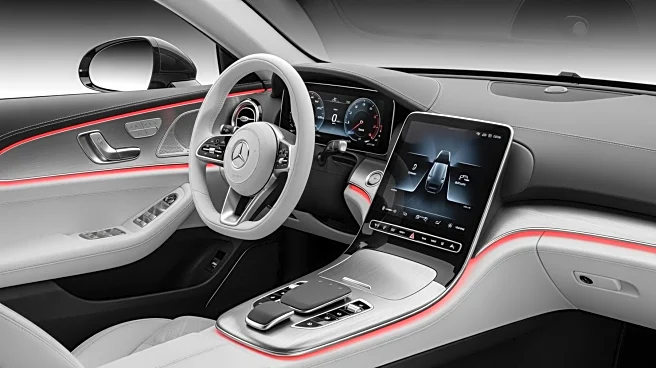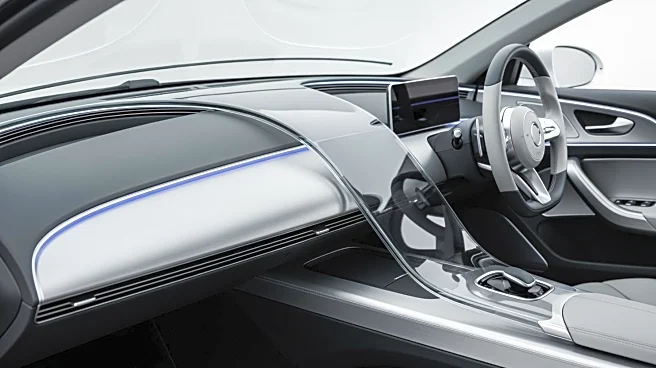What's Happening?
Toronto-based startup Waabi has appointed Lior Ron, the former CEO of Uber Freight, as its new Chief Operating Officer. This move is part of Waabi's strategy to transition from research and development to the commercialization of its AI-powered self-driving trucks by the end of the year. Waabi, founded by Raquel Urtasun, is focused on deploying fully autonomous trucks currently operating in Texas with human drivers onboard. Ron, who co-founded the self-driving tech company Otto, will lead Waabi's go-to-market strategy and strengthen industry partnerships. Waabi continues its collaboration with Uber Freight, aiming to expand their joint operations in autonomous trucking. The company has secured significant investments, including a $275-million Series B funding round co-led by Uber, and has partnered with Volvo to commercialize self-driving trucks. Waabi is advocating for a regulatory framework in Canada to support the deployment of AI-driven vehicles.
AD
Why It's Important?
The appointment of Lior Ron as COO marks a significant step in Waabi's efforts to commercialize self-driving trucks, a sector poised to revolutionize logistics and transportation. By transitioning from research to commercialization, Waabi is positioning itself as a key player in the autonomous vehicle industry. This development could lead to increased efficiency and reduced costs in freight transportation, benefiting businesses and consumers alike. The collaboration with Uber Freight and Volvo highlights the growing interest and investment in autonomous technology, which could drive innovation and competition in the market. Additionally, Waabi's push for a regulatory framework in Canada underscores the importance of establishing guidelines to ensure the safe and effective deployment of AI-driven vehicles.
What's Next?
Waabi plans to continue its efforts to commercialize self-driving trucks by the end of the year, with Lior Ron leading the charge. The company will focus on strengthening industry partnerships and expanding its operations in Texas and beyond. As Waabi advocates for a regulatory framework in Canada, stakeholders such as policymakers, industry leaders, and civil society groups may engage in discussions to address the legal and ethical implications of autonomous vehicles. The success of Waabi's commercialization efforts could influence other companies in the sector to accelerate their own initiatives, potentially leading to a broader adoption of self-driving technology in the logistics industry.
Beyond the Headlines
The commercialization of self-driving trucks by Waabi could have long-term implications for the transportation industry, including shifts in employment patterns and the need for new skill sets among workers. Ethical considerations regarding the safety and reliability of autonomous vehicles will likely be a focal point in regulatory discussions. Furthermore, the environmental impact of self-driving trucks, such as potential reductions in emissions and fuel consumption, could contribute to sustainability goals. As Waabi and other companies advance in this field, the cultural acceptance of AI-driven vehicles may evolve, influencing public perception and policy decisions.










